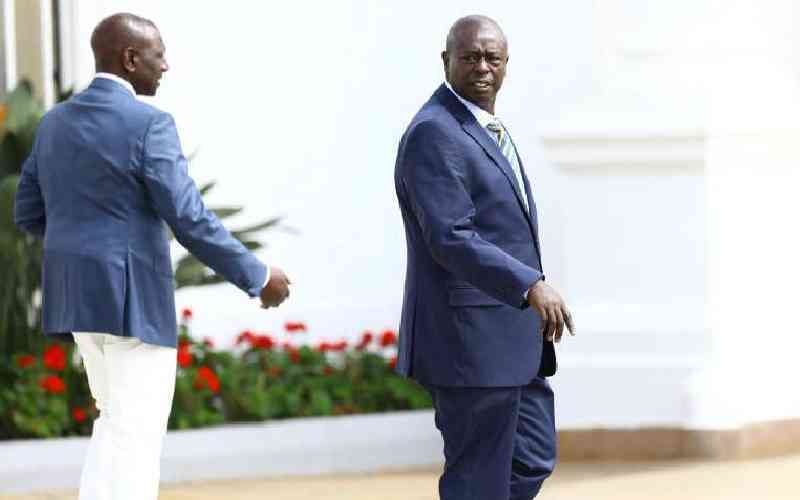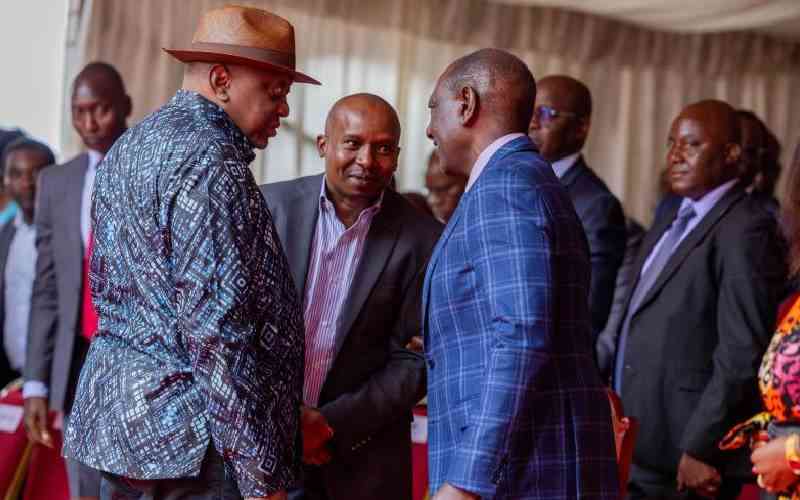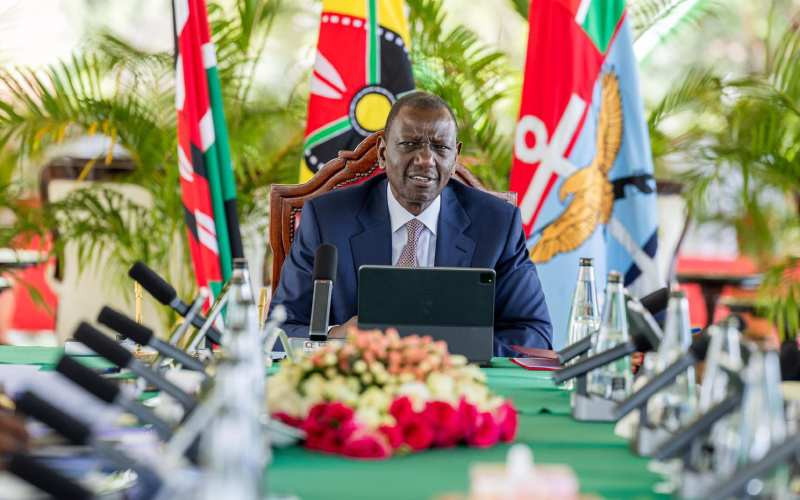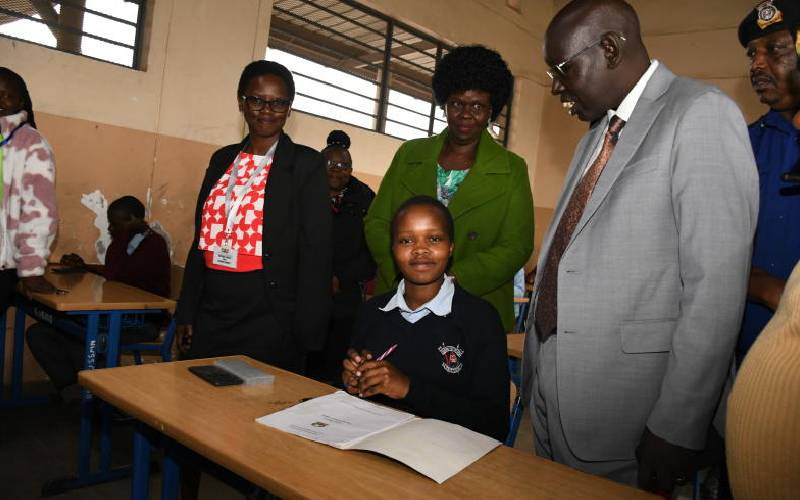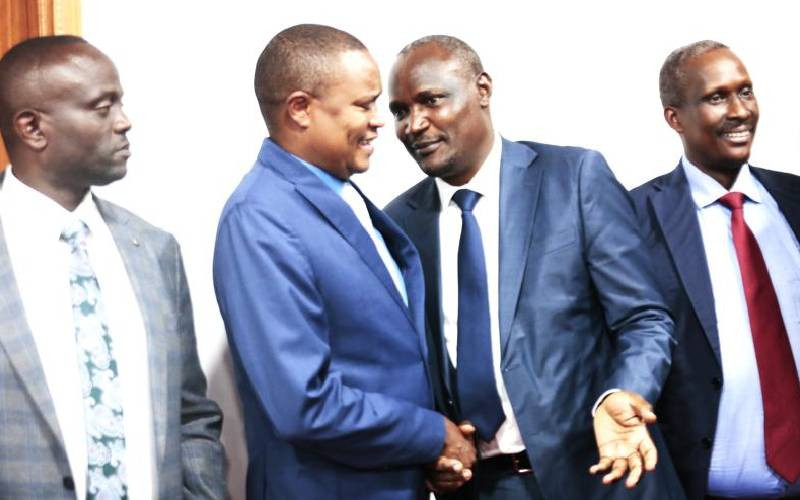The main constitutional function of the deputy president in a presidential system such as Kenya’s (and the United States’) is to secure an efficient and least disruptive transition, whenever a vacancy arises in the President’s office.
While the deputy president is constitutionally mandated to serve as the principal assistant to the president, there is no doubt that the president does not suffer for want of assistants in the discharge of his constitutional mandate.
The entire Cabinet is at his beck and call, while the bureaucracy stands at attention to his every directive.
Consequently, the constitution in article 146(2)(a) recognises that the deputy president serves as president for the remainder of the president’s term should a vacancy arise in the latter office.
If the unexpired term of the president served by the deputy president is in excess of two and a half years, the constitution deems the deputy president to have served a full term for purposes of article 142(2).
That means, for instance, a deputy president who hypothetically serves an unexpired term of 3 years commencing mid 2019, will be eligible to contest the 2022 elections but not the 2027 election, as he would have served two terms and is therefore barred by dint of article 142(2) of the constitution.
Such a deputy president will therefore serve a total of only 8 years if he were to be elected president in 2022.
Sufficient enough
In contrast, a deputy president who serves the unexpired term of 2 years commencing hypothetically in 2020 will be eligible to contest the 2022 and 2027 elections, and if he were elected, would have served a total period of 12 years, notwithstanding the two- term limit based on a reading of article 142(2) and 136(2)(a) of the constitution which suggests that one could only serve a maximum of 10 years.
The constitutional intent emerging from the above assessment is that, what constitutes a full term is whether the unexpired term is sufficient enough to allow the succeeding deputy to be considered to have substantially served as president.
What amounts to substantial service is determined by our constitution; not by recourse to what the deputy does in the course of his duties, but by the length of the unexpired term of the president.
If one were to subject the current context to this reasoning, it becomes evident that the eligibility of the current incumbent of the office of the deputy president to seek the president’s position in 2022 is unchallengeable on this ground.
Even on factual grounds (though immaterial for purposes of determining substantiality), while the deputy president may exercise presidential functions as delegated in writing by the president, an examination of executive orders issued in 2013 and 2018 that set down the organization of government in president Kenyatta’s first and second terms, shows that no specific functions were ever delegated to the deputy president.
Several rights
As such, the office appears more bereft of mandate than did the vice president’s office under the previous constitutional order.
Stay informed. Subscribe to our newsletter
What has been presented as co-presidency, allegedly evident in the current administration, accords substantive weight to the political camaraderie enjoyed by the president and his deputy.
An interpretation of the constitution that denies the deputy president an opportunity to contest the presidency finds no support in the current constitutional context.
In fact, to do so, would deprive the holder of the subordinate office several rights clearly provided for in the constitution.
Article 38(3)(c) empowers every citizen to be a candidate for public office without unreasonable restrictions.
Reasonable restrictions including specific qualifications for different offices have been set down by the constitution itself and in legislation.
If the constitution contemplated ineligibility to vie for president by a person who has held the office of deputy president for two terms, it should have explicitly said so, given that the grounds of eligibility are very clear.
Therefore, it is inconceivable why being a deputy president should hinder any person from contesting the presidency itself. If anything, it should be seen as the next natural step.
Further, a reading of the constitution that denies the deputy the right to contest will run afoul of the non-discrimination norm of the constitution.
Dr Sing’Oei- Legal Advisor, deputy president’s office. Views are personal
 The Standard Group Plc is a
multi-media organization with investments in media platforms spanning newspaper
print operations, television, radio broadcasting, digital and online services. The
Standard Group is recognized as a leading multi-media house in Kenya with a key
influence in matters of national and international interest.
The Standard Group Plc is a
multi-media organization with investments in media platforms spanning newspaper
print operations, television, radio broadcasting, digital and online services. The
Standard Group is recognized as a leading multi-media house in Kenya with a key
influence in matters of national and international interest.
 The Standard Group Plc is a
multi-media organization with investments in media platforms spanning newspaper
print operations, television, radio broadcasting, digital and online services. The
Standard Group is recognized as a leading multi-media house in Kenya with a key
influence in matters of national and international interest.
The Standard Group Plc is a
multi-media organization with investments in media platforms spanning newspaper
print operations, television, radio broadcasting, digital and online services. The
Standard Group is recognized as a leading multi-media house in Kenya with a key
influence in matters of national and international interest.

